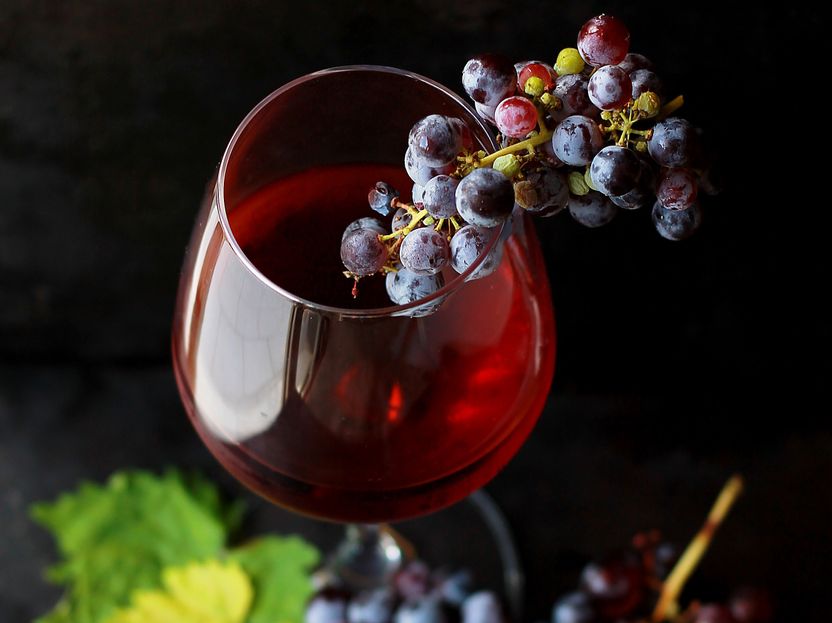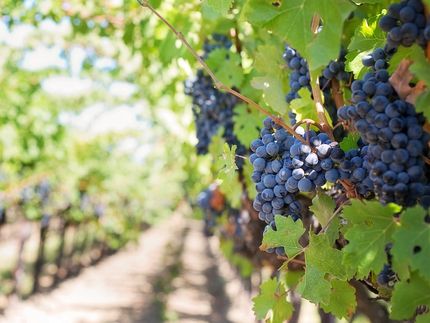Organic viticulture gains importance: many seals make overview difficult
The area under cultivation for organic wines in Germany is growing. "About 12.5 percent, or 12,500 hectares, are certified organic," says Randolf Kauer, professor of organic viticulture at the university in Geisenheim, Hesse. "This corresponds to a fivefold increase in the organic area since 2004," adds Ernst Büscher, spokesman for the German wine Institute. After almost 40 years, he says, organic viticulture is "firmly established." "Most farms are converting because organic wines are in demand," reports scientist Kauer, himself an organic winemaker from the Middle Rhine region. "The flagship wineries in the VDP (Association of German Prädikat Wine Estates) are really pushing the envelope. The big wineries are following suit." In the Rheingau, more than 20 percent of the wineries are now certified organic, he said.

Foto von Roberta Sorge auf Unsplash
"In organic viticulture, the goal is to maintain a balanced vineyard ecosystem and promote biodiversity," Büscher explains the principles. All synthetic chemical pesticides are therefore dispensed with, as are artificially produced fertilizers and herbicides. "From the sensory point of view, no major differences can be detected," says Kauer. "Because the taste of wine is in the foreground when buying wine, organic is often an additional benefit that is gladly taken because it supports environmentally friendly wine production," says Büscher.
Büscher reports that many wineries have also noticed an improvement in the quality of their wines as a result of the three-year conversion from conventional to organic cultivation. However, by no means all winegrowers have made a big show of their organic farming methods. At the same time, organic vintners have a whole range of organic labels.
"A good half of the farms are exclusively EU-certified," says Kauer. For more than ten years (August 2012), there has been the EU organic logo with a euro leaf on a green background. This is becoming increasingly well-known among consumers, while the hexagonal German organic seal is losing importance.
In addition to external management in the vineyard, the EU regulation also governs the technical preparation of organic wines in the cellar, explains Büscher. This includes lower limits for sulfur content compared to conventionally produced wines. "In addition, some wine treatment substances are dispensed with, some must be of organic origin and the renunciation of any genetic engineering, for example in yeasts, is also prescribed."
"The remaining seals were distributed among several associations, primarily Ecovin as a pure organic winegrowing association, followed by Bioland, Naturland and Demeter," Kauer says. These growers' associations, as well as the organic association GÄA, had already established their own guidelines for winemaking before 2012, according to the German Ministry of Agriculture's organic agriculture portal. "These differ from the EU regulation by in parts higher requirements or stricter prohibitions on the use of auxiliary materials and processes."
"In the organic sector, these cultivation associations are established," says the consumer center Rhineland-Palatinate. Customers know them from organic foods. Not so Ecovin: According to Büscher, the association, founded in 1985, is the largest association of organically working wineries in the world. Last year, its nearly 250 member wineries cultivated more than 2,700 hectares of vines in twelve German growing regions. In Italy and France, the proportion of certified organic vineyards is growing even faster than in Germany, says Kauer, and speaks of around 20 percent each.
According to Büscher, the trend toward biodynamic farming in German organic viticulture is only a few years old. Demeter farms working in this way made "even greater use of the forces of nature" and were also oriented toward the anthroposophist Rudolf Steiner. They did not produce wine, but "accompany it with minimal measures," Demeter says. This includes burying cow horns in the vineyard filled with ground quartz or manure, reports Andreas Roll of the biodynamic Gustavshof in Gau-Heppenheim, Rheinhessen.
"There are also some small groups with labels," says Kauer. For example, some bottles feature the logos of Respekt Biodyn, based in Austria, and the French brand Biodyvin - both of which also stand for biodynamic viticulture. Fair'n Green, on the other hand, is not an organic seal but a seal for sustainable viticulture. Around 120 wineries have joined, conventional and
organic winegrowers. Among them are VDP wineries such as Jean Stodden and Meyer-Näkel from the Ahr.
Winzer Roll has more and more "Maxnat" wines in its range, about 10 of the 30 varieties, in addition to Demeter wines. "Maxnat" stands for "maximum natural," the 43-year-old explains. That includes quality wines as well as country wines. "But this is still totally in its infancy." About 20 wineries in Germany have joined in so far. Roll describes the credo in the production of naturally cloudy, unsulfured and unfiltered natural wines as "nothing in and nothing out."
"In organic wines, there are many individualists who make particularly interesting wines," Kauer notes. These so-called natural wines are among them, he adds. However, "natural wines are completely uncertified. They don't have to be certified organic."/irs/DP/zb (dpa)
Note: This article has been translated using a computer system without human intervention. LUMITOS offers these automatic translations to present a wider range of current news. Since this article has been translated with automatic translation, it is possible that it contains errors in vocabulary, syntax or grammar. The original article in German can be found here.






























































